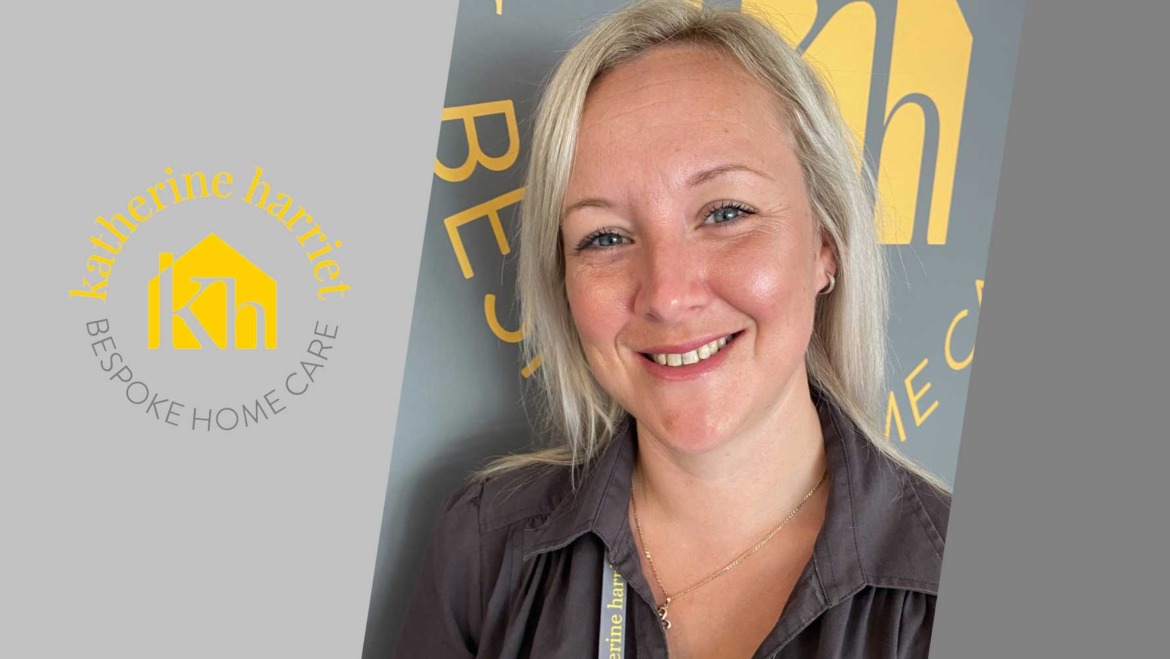Lucy Pilliner, Business Manager at Katherine Harriet talks about how we achieve safe care and treatment in our organisation.
Firstly
What is SAFE CARE? CQC Health and Social Care Act 2008 (Regulated Activity) state.
The intention of this regulation is to prevent people from receiving unsafe care and treatment and prevent avoidable harm or risk of harm. Providers must assess the risks to people’s health and safety during any care or treatment and make sure that staff have the qualifications, competence, skills, and experience to keep people safe.
Risk assessments
Katherine Harriet’s Managers assess the risks posed by any care or treatment we are required to provide to the health and safety of our clients and do all that is reasonably practical to limit those risks. This includes ensuring that all our staff are fully trained to provide treatment and have the necessary qualifications, competence, skills, and experience to do so safely and effectively.
All our staff undergo an intense three days Induction training, shadow shifts and competency tests to meet and gain the Care Certificate. Certain areas of training are then followed by competency tests and a course of shadowing with our Mentors who support and develop the new inductees. Our Mentors are very skilled in all areas and have an abundance of knowledge and skill to pass on ensuring that our high standard of care is upheld through the staff and their work. Three shadow shifts are the minimum requirement however if more is needed this is arranged. Once the mentors are happy with the inductee’s progress and feel they are competent to lone work and have covered all areas of training out in the field they are then asked to come in and be signed off by a Manager. The Manager will then observe all reports, training completed including test results and shadowing to identify any more needs, training or support that may be needed. We are all different and KH accommodate, all needs and abilities to ensure we are diverse to the inductees needs and are also confident that they are ready to work alone and work safe. Once signed off, the Mentors and Managers will act as “a buddy” for the first few weeks to offer support where needed. There are a range of clients we support which occasionally can include more training requirements, as the needs of the service user require it, such as when they have a Percutaneous Endoscopic Gastrostomy (PEG) feed, Stoma Care and much more.
We also conduct a very thorough Risk Assessment of our clients and their home. When assessing the client’s we consider their needs, preferences and wishes which will include all health and safety aspects and further training our staff are required to have to meet the client’s needs. All of the Risk Assessments are done with the client’s needs at heart forming a Person-Centred Care Plan followed by Risk Assessments and Policies. We endeavour to support our clients in helping them maintain as much autonomy and independence as possible, for as long as possible.
Premises, equipment, and medicines
All premises and equipment used for care and treatment of our clients must be both safe to use and used in a safe way. The assessment described above covers all safe use of equipment and premises. All our staff members are adequately trained in the safe use of equipment. All training is refreshed regularly, and up-to-date refresher courses are provided to ensure practice remains up to date and following current guidelines.
Katherine Harriet ensure that all equipment and medicines supplied to the client, are available, that there is enough and that all equipment and medicine records are up to date and changed accordingly and are relevant to the needs of the client. All records are updated as and when needs arise or change as well as proper and safe processes for managing medicines, including their administration, handling, and storage, in adherence to all relevant and current legislation and guidance.
Infection Prevention and Control (IPC)
Katherine Harriet pride ourselves in maintaining high levels of IPC throughout the company. To ensure high levels are maintained we do this through training and carry out regular spot checks to ensure this is being carried out. Effective prevention and control of infection is part of our everyday practice and are applied consistently by all our staff.
However, since we have been dealing with the fight against COVID-19 IP. The guidance for this in home care was updated in early February 2022 and we continue to follow all Government guidelines ensuring we are working in a safe, effective, and caring way. Katherine Harriet assesses the risk of, prevent, detect, and control the spread of infection. We do this by carrying out training, supplying regular updates through many forms of communications and regular updates to our policies and procedures as guidance changes. This can be found on our website at www.katherineharriet.care. We also ensure all PPE is supplied and that they carry out a LFT daily before carrying out their calls.
Multi-agency partnerships
Katherine Harriet work alongside other Healthcare Professionals which involve on times sharing of responsibility for the care and treatment of our clients. This can be a broad range of practitioners, including GPs and district nurses, a long list of therapists (occupational, physical, speech and language, etc.), and sensory specialists, to name a few.
We strive to ensure that professional relationships are developed and maintained as more complex needs are met outside of the hospital such as in the client’s home. We also ensure we provide timely care planning and involve all those involved in the provision of care and treatment, to ensure the health, safety, and welfare of our clients. This includes a clear definition of professional responsibilities and the protocols for sharing information within the care plan. We also take very seriously the clients right to confidentiality in all we do.

